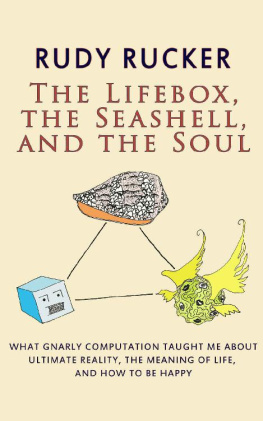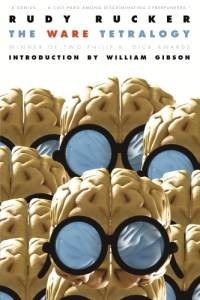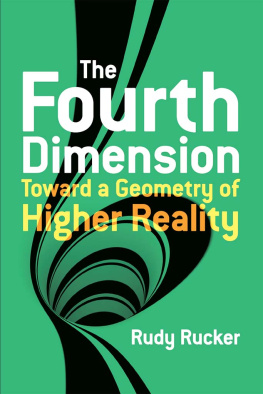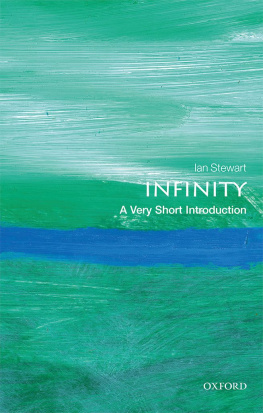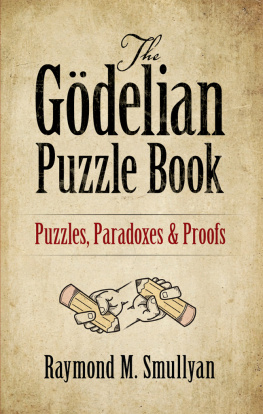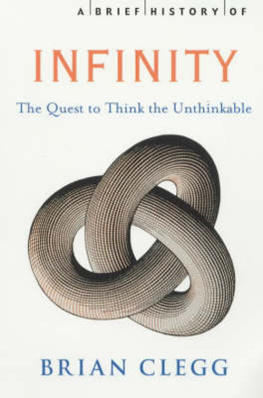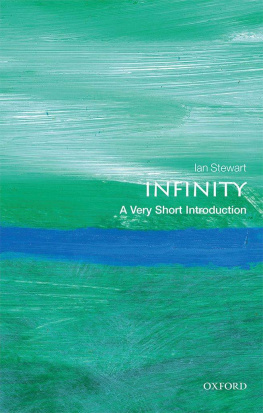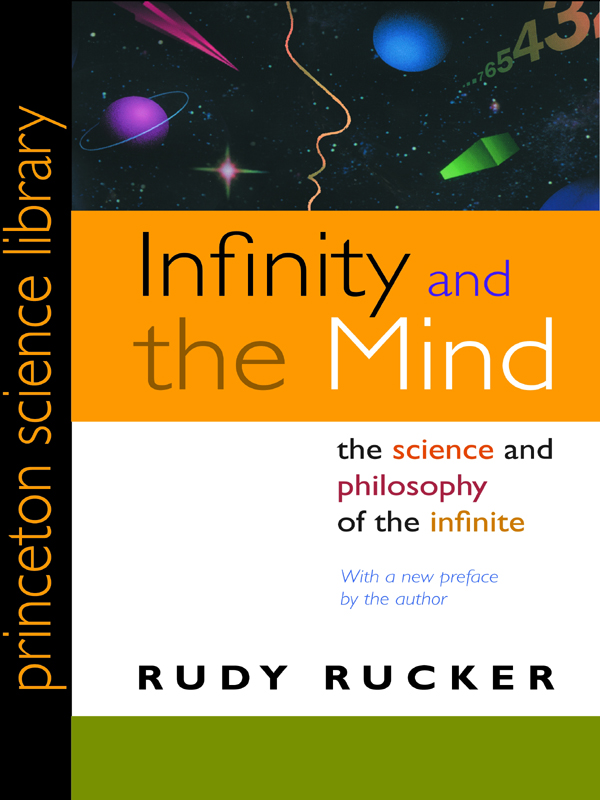
INFINITY
and the
MIND
INFINITY
and the
MIND
The Science and Philosophy of the Infinite
With a new preface by the author
RUDY RUCKER
PRINCETON UNIVERSITY PRESS
PRINCETON AND OXFORD
Copyright 1995 by Princeton University Press
Preface to the 2005 Edition Copyright 2005 by
Princeton University Press
Published by Princeton University Press,
41 William Street, Princeton, New Jersey 08540
In the United Kingdom: Princeton University Press,
3 Market Place, Woodstock,
Oxfordshire OX20 1SY
All Rights Reserved
Originally published by Birkhuser in 1982. Reprinted in paperback by arrangement with the author.
First Princeton Paperback printing, for the Princeton Science Library, 1995
Expanded Princeton Science Library Edition, with a new preface by the author, 2005
Library of Congress Control Number 2004110335
ISBN 0-691-12127-3
Printed on acid-free paper.
psl.princeton.edu
Printed in the United States of America
7 9 10 8 6
ISBN-13: 978-0-691-12127-7 (pbk.)
ISBN-10: 0-691-12127-3 (pbk.)
TABLE OF CONTENTS
PREFACE TO THE 2005 EDITION
So here I am writing a third preface for Infinity and the Mind. Though I keep hoping to surpass it, this early work may turn out to be my most popular. Habent sua fata libellibooks have their own destinies.
Im grateful to my publishers, and to the readers whove contacted me over the years. Infinity is important and interesting, and learning about it can indeed make a difference in ones life.
Ill take this opportunity to expand upon my text with three notes touching on, respectively, cosmology, computer science, and set theory.
* * *
In the first of the puzzles and paradoxes at the end of , I posed the question of whether an infinite universe would be likely to have planets in every way identical to our own. And in my answer on page 295, I minimized this likelihood.
But now I feel that I was underestimating the raw power of infinity. If our universe is infinite, then it could very well be that somewhere far from Earth, a person exactly like you is reading this precise sentence.
The question turns out to be less hypothetical than I formerly supposed, for nowadays some cosmologists believe that our space is truly infinite, with an endless number of stars and planets. The initial Big Bang singularity is to have happened not at any single point, but across infinite space.
If the old image of the Big Bang was of a white dot appearing in a plane, the new image is of an entire endless plane becoming suddenly illuminated in every part. You might visualize a sheet of light settling down upon the plane; indeed, one current model views the universe as pair of parallel spaces that oscillate back and forth, creating a Big Bang each time they pass through each other.
Regarding the question of whether an infinite universe would contain other worlds just like Earth, I recently saw some interesting number play by Max Tegmark in his article Parallel Universes (Scientific American, May 2003, pp. 4151). Assuming that the space-filling Big Bang happened 14 billion years ago, the region of the endless universe presently visible to us is a sphere with a diameter of some 1027, or 1 octillion, meters. (I should mention that the standard name for a number of the form 10(( + 1)3) has the general form -illion.) This octillion-meter-wide sphere, which is called a Hubble volume, contains those objects that are close enough so that light from them has had time since the Big Bang to reach us.
Suppose we make the unexceptionable assumption that our Hubble volume has an average temperature of less than 100 million degrees centigrade (the suns surface is a mere 5000 degrees centigrade). In this case, according to Tegmark, the Hubble volume has room for some 10118 protons. To get a handle on this number its useful to use the number googol, which is written as a one followed by a hundred zeroes:
10118 = 10(18 + 100) = 1018 10100 = 10((5+1) 3) l0100 = quintillion googol.
Now we can wonder how many distinct possible Hubble-volume-sized regions there could be. Lets think of the Hubble volume as a jungle-gym grid with a quintillion googol slots. One can specify an arbitrary random visible universe by deciding what to put in each slotone might leave a slot empty, put a proton or neutron in there, or perhaps stick in an electron or some other kind of particle. To keep things reasonably simple, lets suppose we have ten alternate ways to fill each of the quintillion googol proton-sized slots. In that case, the number of possible ways to populate a Hubble volume with matter consists of choosing among ten options a quintillion googol times in a row, which is ten to the quintillion googol power. In describing this number, it will be useful to use googols big brother, the googolplex, which is 10googol, that is, the number one followed by googol zeroes. (See p. 97 for more about googol and googolplex.)
Since its rather hard to typeset double exponents, Ill use the ^ symbol to stand for the second level of exponentiation.
10(quintillion googol) = 10(10^118) = 10((10^100) (10^18)) = (10(10^100))(10^18) = googolplexquintillion.
So now we know that there are at most googolplex-to-the-quintillion possible versions of how our visible universe could appear. A large number, yes, but if our universe is truly infinite, there will be an infinite number of possible Hubble volumes besides ours, and it seems likely that one of them could be an exact match for our own.
How far off might the first copy of our visible universe be? One idea might be to set out in a straight line and whip through the first googolplex-to-the-quintillion Hubble volumes. Just for fun, lets give this distance a made-up name: one striiide. Given that a Hubble volume has a diameter of an octillion meters, a striiide is an octillion googolplex-to-the-quintillion meters. Would traveling this far guarantee a hit? Not quite.
A little calculating of probabilities indicates that if I travel one striiide, I have a 63% chance of encountering a Hubble volume exactly like the one I started from (the precise probability is very close to 1 1/e, where e is the base of the natural logarithm). But as I travel more striiides, the odds go up, and after ten striiides, my chances of having found a visible universe exactly like ours is better than 99.99%.
With all this said, theres still no certainty that a supertraveler could find another Hubble volume just like the one right here. Consider for instance an infinite set of integers which has only one odd member, the number 3. Someone who starts at 3 and looks for another odd number is going to be disappointed:
{2, 3, 4, 6, 8, 10, 12, 2n, }.
But realistically theres no reason to suppose that our particular Hubble volume is unique and special. So, yes, if the universe really is infinite, then there probably are other people exactly like us somewhere out there. Its an odd thought, somehow liberating. Even if I goof up this preface, some other Rudy will get it right. So why worry?
* * *
I need to make a correction to the section A Technical Note on Man-Machine Equivalence on pages 292294. (I discovered the problem in conversations with the philosophers Leon Horsten and Mark van Atten at the University of Leuven in 2002. I was there as a grateful guest of the Brussels-based VLAC, or Flemish Academic Centre for Science and the Arts.)
Next page

